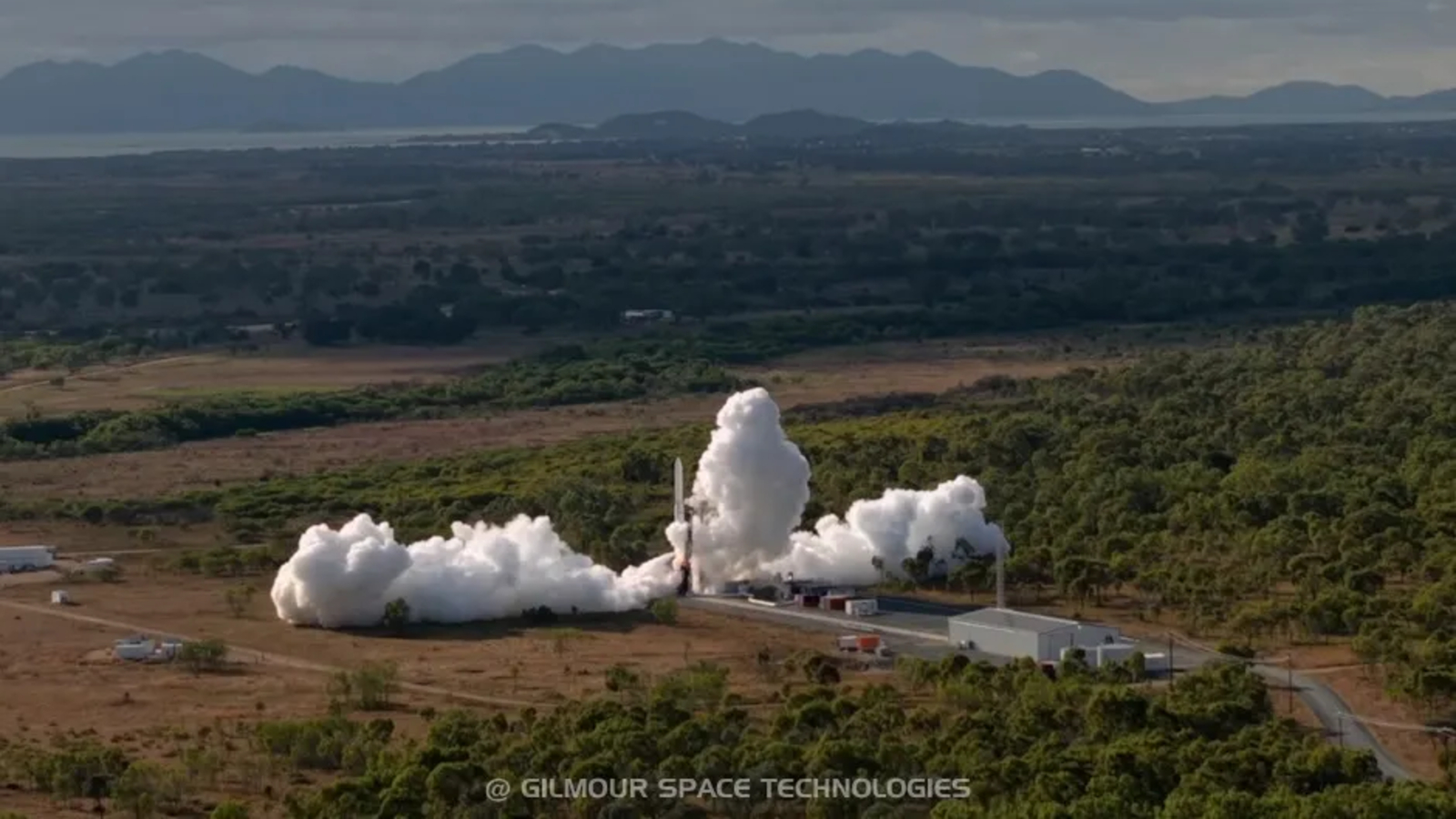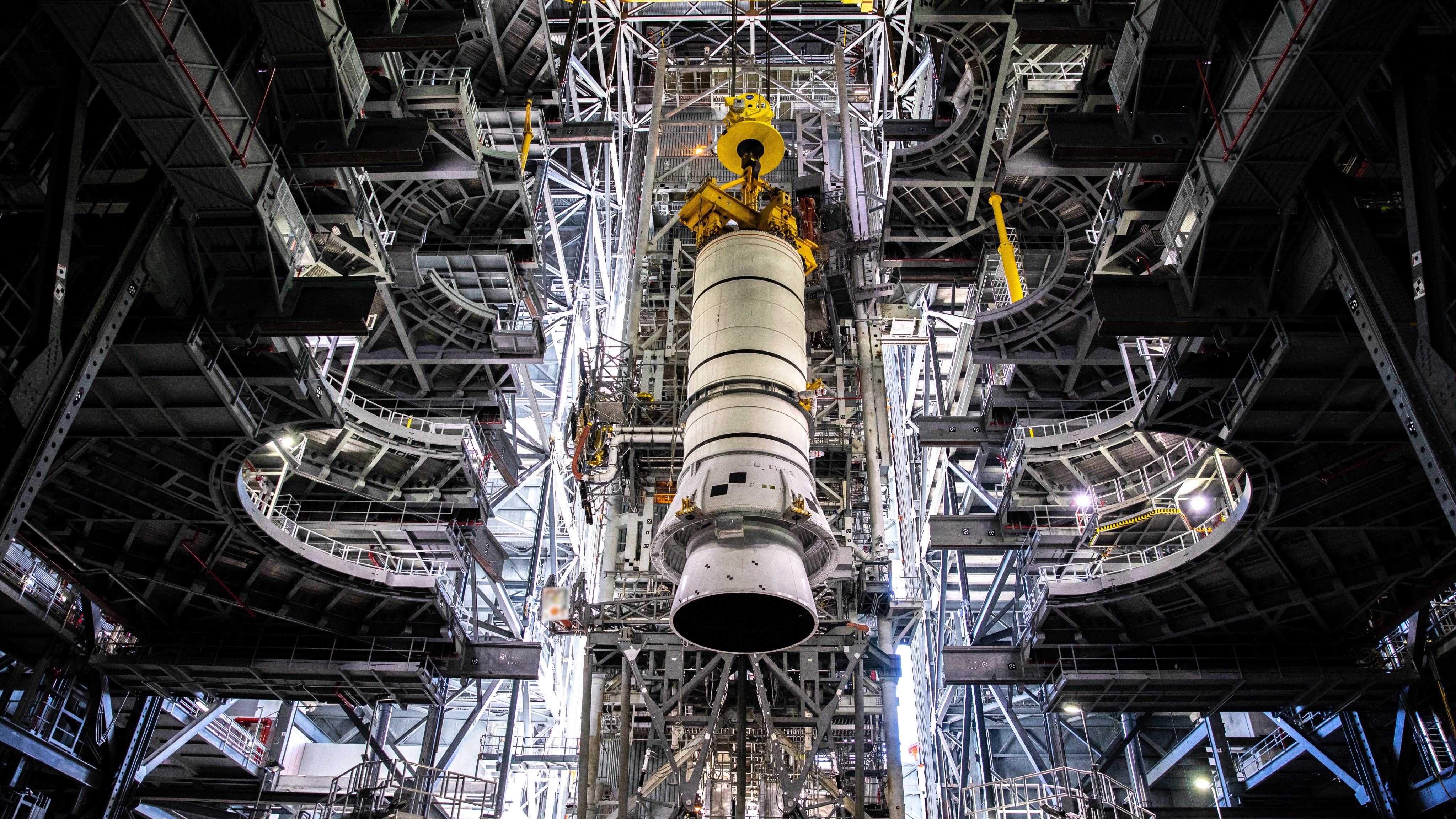After 54-year wait, Australia's first attempt at an orbital rocket crashes 14 seconds after liftoff
Eris-1, the first rocket fully built by an Australian company, crashed back to Earth 14 seconds after taking off from a spaceport in Queensland. It was the country's first orbital launch attempt since 1971.
The first fully Australian-made rocket, Eris-1, just crashed back to Earth 14 seconds after taking off. The launch was the country's first attempted orbital flight in almost 54 years.
On Tuesday (July 29), at 8:35 a.m. local time (6:35 p.m. ET), the private Australian company Gilmour Space Technologies launched the first of its Eris-class rockets from Bowen Orbital Spaceport in coastal Queensland. However, just 23 seconds after the rocket ignited its engines and only 14 seconds after liftoff, the spacecraft was back on the ground.
A video of the launch shows that the rocket initially took off as expected, with all four of its engines firing properly. But after clearing the launch pad its ascent quickly stalled, and it began to slide sideways before dropping back to the ground and disappearing in a cloud of smoke, likely landing on its side. There was no apparent explosion, but the rocket quickly burst into flames.
Eris-1, which stood at around 82 feet (25 meters) tall, was the first spacecraft fully constructed by an Australian company. This was also the country's first orbital launch attempt since October 1971, when the U.K. successfully launched a British Black Arrow rocket into space from a spaceport in Southern Australia, according to AP News.
The launch was initially scheduled for March but was pushed back due to adverse weather conditions caused by Cyclone Alfred. It was then scrapped again in mid-May when a piece of its payload "popped off" the rocket on the launch pad, according to Live Science's sister site Space.com.
Related: Watch a private German rocket explode during 1st orbital launch attempt from European soil (video)

Nobody was hurt during the crash, and there were no "adverse environmental impacts," according to an emailed statement from Gilmour Space. However, the company has not yet revealed what went wrong.
Get the world’s most fascinating discoveries delivered straight to your inbox.
Despite achieving just 14 seconds of flight time, Gilmour Space representatives claimed that the launch was a major success, describing it as a "big step" and an "awesome result," in a post on the social platform X. Historically, most maiden private rocket launches fail to clear the launch pad, they added.
TestFlight1 — Liftoff 🚀Today, Eris became the first #AustralianMade orbital rocket to launch from Australian soil — ~14s of flight, 23s engine burn.Big step for 🇦🇺 launch capability. Team safe, data in hand, eyes on TestFlight 2.(More pics and vids to come from the media.) pic.twitter.com/l9yPSUAIbRJuly 30, 2025
"Getting off the pad and into flight is a huge step forward for any new rocket program," Adam Gilmour, co-founder and CEO of Gilmour Space, said in the statement. "This was the first real test of our rocket systems, our propulsion technology and our spaceport — and it proved that much of what we've built works."
The Eris rockets are designed to launch 660 pounds (300 kilograms) of material into low Earth orbit, which is around 15 times more than SpaceX's Falcon 9 rockets. Their primary payloads will likely be small communications satellites, which are also being developed by Gilmour Space.
It is currently unclear when the next Eris mission is set to launch.

Harry is a U.K.-based senior staff writer at Live Science. He studied marine biology at the University of Exeter before training to become a journalist. He covers a wide range of topics including space exploration, planetary science, space weather, climate change, animal behavior and paleontology. His recent work on the solar maximum won "best space submission" at the 2024 Aerospace Media Awards and was shortlisted in the "top scoop" category at the NCTJ Awards for Excellence in 2023. He also writes Live Science's weekly Earth from space series.
You must confirm your public display name before commenting
Please logout and then login again, you will then be prompted to enter your display name.
 Live Science Plus
Live Science Plus






